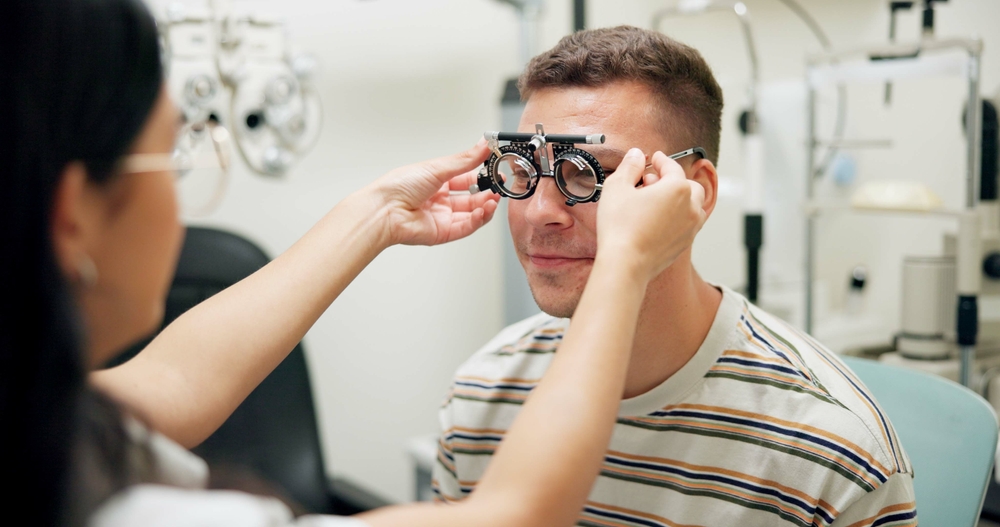
Understanding Different Types of Eye Exams and What They Reveal About Your Vision
Regular eye exams are crucial for maintaining optimal vision and eye health. These comprehensive assessments not only help detect vision problems but also uncover underlying eye conditions that may require prompt medical attention. At Fulshear Eye Center, we offer comprehensive eye care that addresses both your vision needs and overall eye health. Understanding the different types of eye exams can help you take control of your eye health and ensure you receive the right care.
Comprehensive Eye Exam: The Key to Optimal Vision
A comprehensive eye exam is an in-depth evaluation of your vision and eye health. It goes beyond just determining whether you need glasses or contacts; it assesses the overall function of your eyes. This exam typically includes:
• Visual Acuity Test: Measures how clearly you see at various distances.
• Refraction Test: Determines your prescription for corrective lenses.
• Eye Muscle Function Test: Ensures your eye muscles work together properly.
• Pupil Response Test: Checks how your pupils respond to light.
• Slit-Lamp Examination: Allows your eye doctor to view the structures of your eyes, including the cornea, lens, and retina, under magnification.
Comprehensive eye exams are essential for detecting early signs of vision problems like myopia, hyperopia, astigmatism, and presbyopia. They also help identify early-stage eye diseases that may not present noticeable symptoms but can impact your long-term vision health. By scheduling routine comprehensive eye exams at Fulshear Eye Center, you're taking proactive steps toward maintaining clear, comfortable vision.
Medical Eye Exam: Detecting and Monitoring Eye Diseases
In addition to comprehensive exams, medical eye exams focus on detecting and monitoring specific eye diseases. If you experience symptoms such as blurred vision, eye pain, or light sensitivity, or if you have a family history of eye disease, a medical eye exam may be necessary. Conditions that a medical eye exam can detect or monitor include:
• Glaucoma: A condition that damages the optic nerve and can lead to vision loss.
• Cataracts: Clouding of the eye’s lens, leading to blurry vision.
• Macular Degeneration: A progressive disease affecting the central portion of the retina, crucial for sharp vision.
• Diabetic Retinopathy: A complication of diabetes that affects blood vessels in the retina.
• Dry Eye Disease: A condition in which the eyes do not produce enough tears or the tears evaporate too quickly, causing discomfort and vision issues.
At Fulshear Eye Center, we use advanced diagnostic technology to monitor and treat these conditions, ensuring that you receive the specialized care necessary to protect your vision.
Comprehensive Eye Care at Fulshear Eye Center
Whether you're due for a routine eye exam or need specialized care for an eye condition, Fulshear Eye Center is dedicated to providing comprehensive eye care. Our experienced optometrists use the latest diagnostic tools and treatment options to ensure your eyes remain healthy and your vision stays sharp. From comprehensive eye exams to medical eye exams for detecting and managing eye diseases, we’re here to support your long-term eye health.
Schedule Your Next Eye Exam with Fulshear Eye Center Today
Take the time to prioritize your eye exam, and let Fulshear Eye Center guide you on your journey towards optimal visual acuity and eye health. Visit our office in Fulshear, Texas, or call (832) 571-2020 to book an appointment today.








